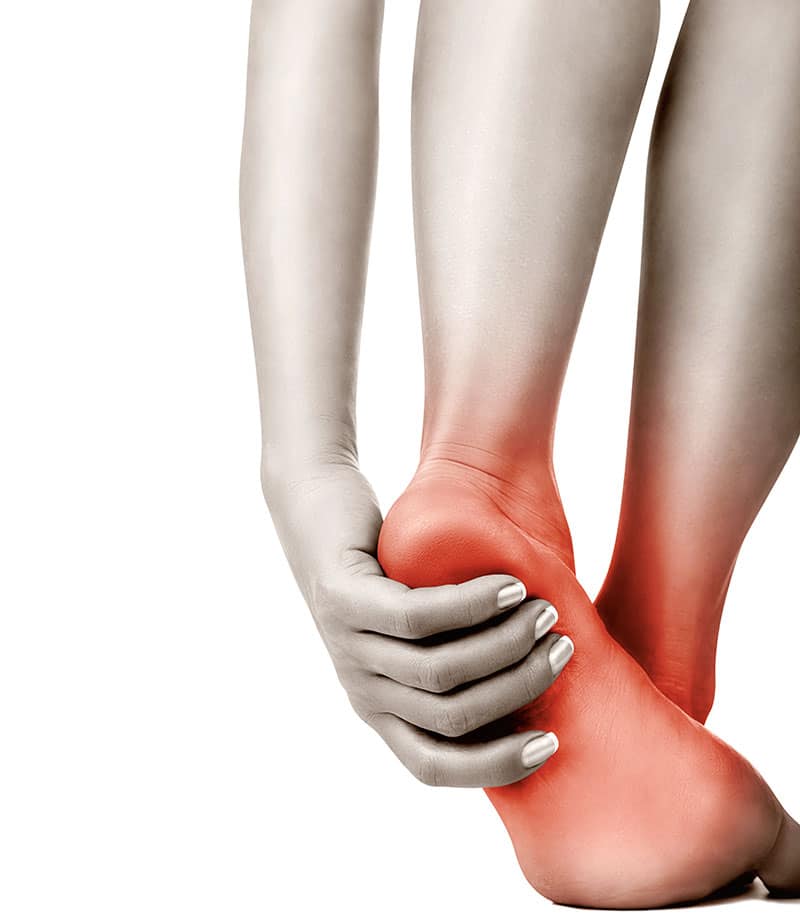Heel Pain – Causes and Treatment

There are two types of heel pain, plantar fasciitis (pain under the heel) and Achilles tendinitis (pain just behind the heel. Heel pain is uncomfortable and can worsen to the pointing of causing disability. However, it rarely becomes serious to your overall health.
Heel pain starts as a mild discomfort and most often disappears without treatment. If your heel pain continues to worsen and does not disappear, then you see your doctor to determine the cause of your pain and to find relief for your discomfort. In rare instances, heel pain can develop into a chronic condition that requires regular care from a physician.
The calcaneus is one of 26 bones in the foot. It is the largest bone in the foot and is responsible for providing support for human body weight. When running or walking, the calcaneus absorbs the impact every time your foot hits the ground. It is also responsible for helping you spring forward after your foot has hit the ground so that you can take your next step. Research shows that when walking, your foot experiences stress equal to 1.25 times your body weight, and when running it experiences 2.75 times your body weight in stress.
This great amount of force and stress from walking and running, the heel is very vulnerable to sustaining damage and experiencing pain. It is most commonly found that a mechanical issue causes heel pain, but it can also be caused by neurologic, traumatic, autoimmune, infectious reasons and arthritis. Heel pain can also be caused by injuries such as breaks, twists, falls, and sprains. Other conditions can cause heel pain as well.
Plantar fasciitis is an inflammation of the plantar fascia, which is a ligament in the foot that is shaped like a strong bowstring. It runs from the heel bone to the tip of the foot. When this ligament is stretched beyond its capacity, the soft tissue fibers contained in the ligament become swollen and this causes the pain of plantar fasciitis.
If you experience pain on the bottom of your foot (especially after you have been resting or sitting) accompanied by cramps in your calf muscle, then you could have Achilles tendinitis.
If you experience heel pain that does not go away, you should see your doctor or a chiropodist so that they can determine the cause of your heel pain and give you a plan of care to help eliminate or alleviate your pain. They may prescribe either prescription or over-the-counter medications to help you cope with your pain. Corticosteroids, physical therapy, night splints, orthotics, and extracorporeal shock wave therapy are also treatment modalities that your physician or chiropodist may prescribe to help you alleviate your eliminate your pain.
Heel pain can cause you to limit your physical activity and even avoid social and exercise activities that are important to you. If over-the-counter medications do not relieve your pain, then see your doctor or chiropodist.








